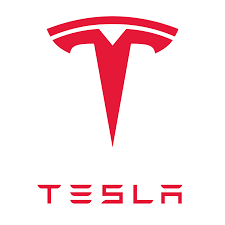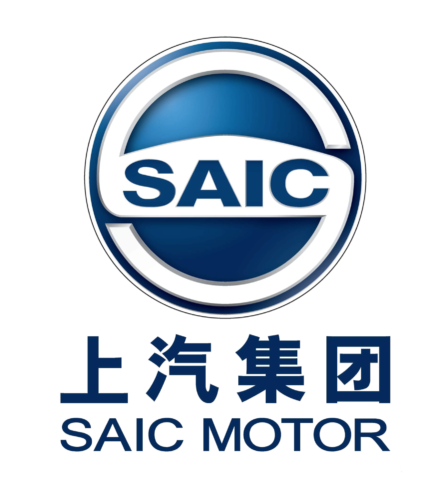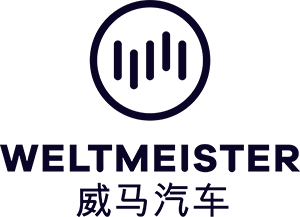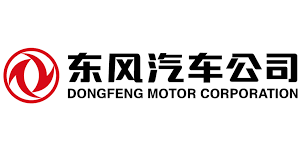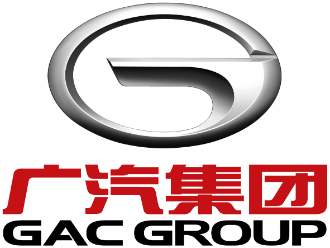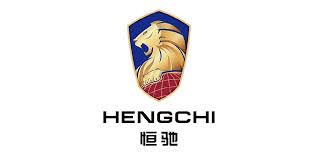Electric vehicles and smart systems to drive them are attracting enormous sums of capital and China’s best engineering talent. These are the companies that are fighting for one of the most lucrative markets in the world. Many of them will be global EV players.
With mainstream consumer acceptance and government support, China’s electric vehicle (EV) sector is booming. At the same time that China is trying to say goodbye to gas and hello to batteries, Chinese companies are accelerating their development of autonomous features and fully self-driving cars. Cars are computers now, and it will be more and more difficult to make a meaningful distinction between the electric vehicle and autonomous vehicle industries.
According to estimates by both banks HSBC and UBS, three out of five new cars sold in China will be electric by 2030. That would mean around 18 million EVs, and a market size of $360 billion, if the average car cost $20,000. And that’s just for the cars: Secondary industries will bloom in financing, navigation, software, autonomous hardware components, traffic surveillance, and more.
China has one EV veteran — BYD, or Build Your Dream — the Warren Buffett–backed automaker that has been making electric models since 2008. However, Tesla currently makes the best-selling electric cars in the Chinese market. Now everyone else is piling into the industry, from Chinese state-owned auto groups like SAIC to foreign companies like VW, from indebted real estate groups like Evergrande to tech giants like Tencent, Huawei, Baidu, and Didi Chuxing.
So who is who in EVs in China? Utilizing Chinese- and English-language sources, SupChina has compiled information on all the companies currently fighting for a slice of China’s EV pie. Some work strictly in software (for now), but we’ve included them because “smart” features like autonomous driving and mobile device integration are critical to the future EV ecosystem. EV makers use the terms “smart” and “connected” to refer to technology that automates certain tasks by relying on predictive algorithms or connectivity
to other devices or a network.
We’re missing some numbers and basic facts, many of which are not in the public domain, as the companies involved are privately held, but we will continue to add to and correct this list as we find authoritative information.
We have also not included non-electric new energy vehicles, such as hydrogen-powered cars, where China is also a significant global innovator.
List of EV makers
Roughly in order of EV units shipped:
- Tesla
- BYD
- SAIC Motor
- SAIC Volkswagen
- SAIC-GM-Wuling
- NIO
- Xpeng
- Li Auto
- WM Motor
- Geely
- Byton
- Enovate
- Zhiji
- Xiaomi
- Dongfeng Motor
- Chang’an Automobile
- Guangzhou Automobile
- Chery Automobile
- FAW Group
- FAW-Volkswagen Automobile
- Evergrande
- BAIC Motor
List of software and service providers
In alphabetical order:
- Alibaba
- Baidu
- ByteDance
- Didi Chuxing
- DJI
- Huawei
- JD
- Meituan
- Tencent
Tesla
- Units shipped: 500,000 (2020)
- Revenues in China: 43 billion yuan / $6.6 billion (2020)
- Number of models: 4
- Number of factories: 4
- Number of employees: 70,757
- Primary industry: Electric vehicle, battery energy storage
Headquartered in Palo Alto, California, the company rocked the first quarter of 2021 thanks to rising car sales in China, where a new Shanghai gigafactory began production in January 2020. With blessings from Beijing, Tesla is the only foreign company to own 100% of an EV factory in the country. Its reliance on China — both in terms of supply chains and Chinese consumer demand — is slated to grow over time.
Timeline:
- May 10, 2018 — Tesla Shanghai is formally established / Bloomberg
- January 7, 2020 — Tesla delivered its first Chinese-made Model 3 to customers / AP
- February 10, 2020 — Tesla resumes production after two week hiatus due to COVID-19 / Xinhua
- April 13, 2021 — Tesla says any data it collects in China is stored in the nation / Bloomberg
- April 18, 2021 — Angry Tesla owner protests brake failures on Model 3 / Bloomberg
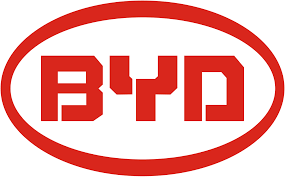
BYD Auto (HKSE: 1211) (SZSE: 002594)
- Units shipped: 130,970 (2020)
- Revenues: 153.5 billion yuan / $23.4 billion (2020)
- Number of models: 5
- Number of factories: 13
- Number of employees: 229,154 (2020)
- Primary industry: Electric vehicles
- Primary industry of parent: IT, rechargeable batteries, handset electronics, energy storage, electric bikes, urban rail transit systems
- EV-related affiliates: Toyota, Didi, FAW
BYD Auto, or Build Your Dreams (比亚迪 bǐyàdí), is the EV subsidiary of Chinese multinational BYD Company. Founded in 1995 with headquarters in Shenzhen and downtown Los Angeles, BYD began as a rechargeable battery business in the IT sector before branching into handset electronics, and then automobiles, including EVs. The company is now moving into other businesses, including renewable energy power plants, LEDs, and urban rail transit systems.
In the span of a decade, BYD became the largest Chinese battery manufacturer, capturing half the world’s mobile-phone battery market. Its EV unit was born in 2002 from an acquisition of Tsinchuan Automobile, then the sixth-largest car manufacturer in China by sales volume. Aside from its own EVs, BYD also supplies other EV manufacturers, including state-owned FAW Group.
Warren Buffett’s Berkshire Hathaway owns 8% of BYD. In April 2020, BYD and Toyota Motors announced a joint partnership in a new company — BYD Toyota EV Technology — that will research and manufacture EVs for the Chinese market.
Timeline:
- September 2008 — Warren Buffett invests $230 million in BYD / CNBC
- April 2, 2020 — BYD announces joint partnership with Toyota to make EVs / Bloomberg
- March 30, 2021 — BYD is partnering with ride-hailing giant Didi Chuxing to develop EVs designed specifically for ride hailing / Caixin Global
- April 7, 2021 — BYD announces it will supply batteries to FAW / Bloomberg
SAIC Motor (SHA: 600104)
- Units shipped: Number of EVs not available
- Revenues: 742 billion yuan / $113 billion (2020)
- Number of factories: N/A
- Number of models: N/A
- Number of employees: 147,738 (2019)
- Primary industry: Gas-powered cars, commercial vehicles
- EV-related affiliates: GM, Wuling, Volkswagen, Zhiji, Alibaba
SAIC Motor (上汽集团 shàngqì jítuán) is China’s biggest traditional automaker. Headquartered in Shanghai, with origins dating back to the 1940s, it has recently made a concerted transition from gas-powered cars to electric vehicles.
SAIC is a major presence in China’s electric vehicle market because of longstanding joint ventures with foreign automakers that have recently enjoyed success in the sector. They include SAIC-Volkswagen and SAIC-GM-Wuling. More recently, SAIC has also joined together with Alibaba to create Zhiji, a pure electric vehicle brand.
Timeline:
- November 18, 2002 — Joint venture begins / SGMW homepage
- August 20, 2020 — Wuling Mini EV sells 15,000 in 20 days / Autonews
- October 27, 2020 — SAIC-VWs EV only plant begins production / Autonews
- December 17, 2020 — SAIC and Alibaba to launch EVs in 2021 / China Daily
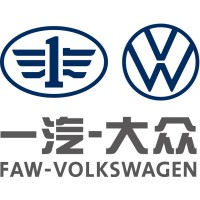
SAIC Volkswagen Automotive (SHA: 600104) (OTC: VWAGY)
- Units shipped in China: N/A
- Revenues: N/A
- Number of factories: 1
- Number of models: 3
- Number of employees: 96,974 (2020)
- Primary industry: Electric vehicles
- Primary industry of parent(s): Gas-powered cars, commercial vehicles, autoparts
- EV-related affiliates: SAIC, Volkswagen, Audi
SAIC Volkswagen, founded in 1984, is one of the oldest sino-foreign auto partnerships. Headquartered in Shanghai, it is owned 50% by Volkswagen and 50% by SAIC, China’s biggest traditional automaker. It sells cars under the Volkswagen and Skoda brands. SAIC Volkswagen now has three all-electric models: The ID.3 hatchback available in Europe, the ID.4 which is selling in the U.S., and now the ID.6. which is designed specifically for the Chinese market.
Timeline:
- October 27, 2020 — SAIC-VWs EV only plant begins production / Autonews
- April 19, 2021 — VW unveils ID.6 EV in China / Green Car Congress
SAIC-GM-Wuling (SHA: 600104) (NYSE: GM) (HKG: 0305)
- Units shipped: Number of EVs not available
- Revenues: 3.5 billion yuan / $533.53 million (2020)
- Number of factories: 12
- Number of models: 3
- Number of employees: 147,738 (2019)
- Primary industry: Electric vehicles
- Primary industry of parent(s): Gas-powered cars, commercial vehicles, autoparts
- EV-related affiliates: SAIC, GM, Wuling
SAIC-GM-Wuling (上汽通用五菱 shàngqì tōngyòng wǔlíng) is a joint venture between SAIC Motor Corp, Wuling Motors, and General Motors. The joint venture began in 2002 as a highly successful maker of commercial minivans. Its first EV — a micro-EV called the Wuling Hongguang Mini EV — outsold the Tesla 3 nearly two-to-one in February 2021. It is priced at $4,162 to $5,607, making it China’s
cheapest EV. Wuling is a state-backed automaker, which, along with cars, makes trucks, buses, and autoparts.
Parent company SAIC has also partnered with Alibaba (see entry list for Zhiji) and Volkswagen (SAIC-Volkswagen) to make smart EVs.
Timeline:
- November 18, 2002 — Joint venture begins / SGMW homepage
- August 20, 2020 — Wuling Mini EV sells 15,000 in 20 days / Autonews

NIO (NYSE: NIO)
- Units shipped: 43,728 (2020)
- Revenues: 16.25 billion yuan / $2.5 billion (2020)
- Number of models: 5
- Number of factories: 1
- Number of employees: 7,000+ (2020)
- Primary industry: Electric vehicles
- EV-related affiliates: Tencent, Baidu
NIO (蔚来 wèilái) is a Chinese manufacturer of smart EVs. Founded in November 2014 and headquartered in Shanghai, the company was launched by CEO William Li (李斌 Lǐ Bīn), the founder of BitAuto (NYSE: BITA), with backing from several other tech executives, most notably the CEO of JD.com (NASDAQ: JD). The company’s investors include Tencent, Baidu, Sequoia, and Warburg Pincus.
NIO’s main products include an electric formula race car along with its ES8, ES6, and EC6 models for the general public. The company recently launched its ET7 model, its first smart electric sedan. In 2018, NIO filed for an initial public offering on the New York Stock Exchange, raising $1.8 billion. Its advanced driver assistance system, known as NIO Pilot, is a direct competitor with Tesla’s Autopilot. The startup has yet to turn a profit.
NIO has been through some rough times. See: Will NIO survive long enough to reap China’s electric car rewards?
Timeline:
- March 2017 — Baidu and Tencent lead $87 million funding round in NIO / Motley Fool
- June 2020 — NIO receives $10 million investment from Tencent Capital / Nikkei Asia
- May 7, 2021 — NIO to ship cars to Norway in September / SupChina
Xpeng (NYSE: XPEV)
- Units shipped: 27,041 (2020)
- Revenues: $895.7 million (2020)
- Number of models: 3
- Number of factories: 1
- Number of employees: 3,676 (2020)
- Primary industry: Electric vehicles
- EV-related affiliates: Alibaba, JD, Xiaomi
Smart EV maker Xpeng (小鹏 xiǎopéng) was founded in August 2014 by former Alibaba executive and namesake Hé Xiǎopéng 何小鹏. The company is headquartered in Guangzhou with an office in Mountain View, California. The senior executive team consists of former employees of Guangzhou Auto, a top Chinese manufacturer, Ford, BMW, and Tesla.
In addition to Alibaba, which currently owns a 14% stake in the startup, Xpeng has drawn its employees from many well-known tech giants, including Xiaomi, Tencent, Samsung, and Huawei. Their expertise has helped Xpeng become competitive in smart car technologies.
On November 13, 2019, the startup completed a $400 million Series C financing round with investors including Xiaomi and the company founder, He. On April 13, 2021, the company announced that it was considering making its own semiconductors. Currently, for its P5 model, debuting in the Shanghai Auto Show on April 21, the company buys chips from Nvidia for autonomous driving and from Qualcomm for its in-car digital cockpit.
Timeline:
- June 25, 2019 — Alibaba leads $348 million funding round into Xpeng / Investopedia
- November 13, 2019 — Xiaomi raises $400 million for Xpeng / TechCrunch
- September 30, 2020 — JD partners with Xpeng to install charging piles / Pandaily
- April 8, 2021 — Xpeng announced construction of a second factory in Wuhan / SCMP
- April 14, 2021 — Xpeng considers building its own semiconductors / CNBC
- April 15, 2021 — Xpeng to debut third car model P5 at Shanghai Auto Show / Motor Authority

Li Auto (NASDAQ: LI)
- Units shipped: 14,464 (2020)
- Revenues: $1.45 billion
- Number of models: 1
- Number of factories: 1
- Number of employees: 2,628 (2019)
- Primary industry: Plug-in hybrid electric vehicles
- EV-related affiliates: Meituan, ByteDance
Li Auto (理想 lǐxiǎng) is a smart EV manufacturer founded in 2015 and headquartered in Beijing. The company also goes by its older name, CHJ Automotive (车和家汽车). The six-year-old startup is backed by Meituan, one of China’s largest ecommerce and consumer services apps, and ByteDance, the owner of short-video app TikTok.
Unlike most other EV makers, Li Auto specializes in plug-in hybrid vehicles (PHEVs), which can be powered by either gasoline or electricity. The company began selling its first model in 2019. In June 2019, the company received $300 million in funding from Meituan CEO Wáng Xìng 王兴 and $30 million from ByteDance. On July 30, 2020, Li Auto raised $1.1 billion in an initial public offering on the Nasdaq, valuing it at $10 billion.
Timeline:
- June 29, 2020 — Meituan invests $550 million in Li Auto / TechNode
- July 25, 2020 — ByteDance invests $380 million in Li Auto / Sohu (in Chinese)
- July 30, 2020 — Li Auto raises $1.1 billion in Nasdaq IPOs / SCMP
- April 12, 2021 — Li Auto Inc. completes offering of $862.5 million convertible senior notes / Yahoo
WM Motor Technology
- Units shipped: 22,495 (2020)
- Revenues: $78 million yuan / $12 million
- Number of factories: 1
- Number of models: 3
- Number of employees: 2,500
- Primary industry: Electric vehicles
- EV-related affiliates: Baidu, Tencent, SAIC
WM Motor Technology (威马 wēimǎ) is a Shanghai-based intelligent EV company selling under the Weltmeister brand.
Founded in 2015, it launched its first production car, the EX5, in May 2018 and shipped its first fully electric vehicle in September of the same year. WM’s investors include Chinese technology giants Baidu and Tencent, along with Sequoia Capital and government-backed investment funds. WM Motor maintains R&D facilities in China, Germany, and the U.S.
WM Motor’s founder, Freeman Shen (沈晖 Shěn Huī), is a former executive at Geely and the chairman of Geely-owned Volvo’s China operations. Prior to WM, Shen co-founded and was the CEO of Pateo Group, a vehicle connectivity and telematics company.
Timeline:
- October 25, 2018 — WM Motor raises $288 million from Baidu, Tencent / Reuters
- September 22, 2020 — WM raises $1.5 billion from government and SAIC / Nikkei Asia
- February 9, 2021 — WM secured $1.8 billion to go public on Shanghai’s Star Board / Bloomberg
- April 21, 2021 — WM Motor’s first L4 self-driving car W6 gains 6,000 orders at Shanghai Auto Show / Yicai Global
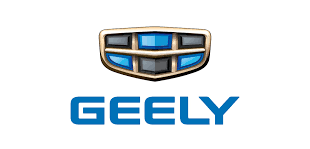
Geely (SEHK: 175)
- Units shipped: Number of EVs not available
- Revenues: 5.53 billion yuan / $850 million (2020)
- Number of factories: 2
- Number of models: 5
- Primary industry: Gas-powered vehicles, electrics vehicles
- EV-related affiliates: Baidu, London Taxi Company, JD.com
Geely (吉利 jílì), or Zhejiang Geely Holding Group, is one of China’s largest traditional automakers, but it has recently begun making the switch from gas-powered cars to EVs.
The company is privately owned by Chinese billionaire Lǐ Shūfú 李书福. Geely has global operations spanning the automotive value chain, from research, development, and design to production, sales, and service. Apart from cars, Geely also has businesses in education, motorsports, and tourism. Geely acquired the Volvo brand from Ford in 2010.
Geely has a number of EV-related subsidiaries. These include Volvo, Geometry, Lynk & Co, and Zeekr, all of which featured EVs during the Shanghai Auto Show in April 2021. It also manufactures premium electric race cars under its Sino-Swedish brand, Polestar. Geely’s electric vehicle ambitions are also present in its unusual acquisition of the iconic London Taxi Company in 2013. In 2017, Geely changed the taxi maker’s name to the London Electric Vehicle Company, and opened an EV plant in Antsy, Coventry, to
manufacture extended-range EV taxis. Geely’s main EV assembly plant is in Hangzhou, Zhejiang.
Timeline:
- January 2010 — Geely buys Ford’s Volvo for $2 billion / Reuters
- February 2013 — Ailing London Taxi Company saved by Geely / The Guardian
- March 2018 — JD extends smart retail vision with Geely partnership / JD.com
- May 2018 — Geely electrifies London’s black cabs in bid to beat Uber / Wired
- January 11, 2021 — Geely teams up with Baidu to develop smart electric vehicles / BBC
- March 19, 2021 — Geely to launch new premium EV brand to target Tesla / Reuters
Byton (formerly Future Mobility)
- Units shipped: N/A
- Revenues: N/A
- Number of factories: 1
- Number of models: 2
- Primary industry: Electric vehicles
- EV-related affiliates: Tencent, Foxconn, FAW, Nanjing Zhixing
Byton (拜腾 bàiténg), formerly Future Mobility, is an EV startup headquartered in Nanjing. Founded in 2015, it spun off from a joint venture between internet giant Tencent, electronics manufacturer Foxconn, and luxury-car dealer Harmony New Energy Auto, and was co-founded by former BMW and Nissan executives. The EV startup had planned to sell premium all-electric, fully autonomous cars, but temporarily halted operations in July 2020 due to financial problems exacerbated by COVID-19.
- In September 2020, Nanjing Zhixing New Energy Automobile Technology (南京知行新能源技术) became the new owner of the brand.
- Chinese automaker FAW, which has its own separate EV venture, now holds a 23% stake in the startup.
- In January 2021, Taiwan’s Foxconn announced it would take a $200 million stake in the company.
Byton currently has two EVs — the M-Byte and K-Byte — and hopes to start mass-producing its M-Byte vehicle by the first quarter of 2022.
Timeline:
- September 20, 2019: Byton CEO quits / Electrive
- June 2020: Byton suspends operations due to virus / Bloomberg
- January 2021: Taiwan’s Foxconn takes a $200 million stake in the company / Bloomberg
- January 2021: Byton production may remain idle until June / Yicai
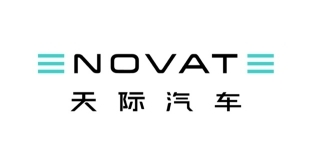
Enovate
- Units shipped: N/A
- Revenues: N/A
- Number of factories: 1
- Number of models: 2
- Primary industry: Electric vehicles
- Primary industry of parent: Technology, software, transportation
Enovate (天际 tiānjì) is an electric car company founded in 2015 under Zhejiang Dianka Automobile Technology (浙江电咖汽车). Zhejiang Dianka provides a range of technology and software services along with the manufacturing of other electrical and transportation components.
Enovate has launched two models: the Dearcc EV10 and Enovate ME7. It intends to create intelligent vehicles through its proprietary system known as ME Pilot.
Timeline:
- June 2015 — Enovate founded as Zhejiang Dianka Automobile Technology / Bloomberg
- November 2017 — Dearcc EV10 goes on market / Car News China
- June 29, 2018 — EV factory begins production in Shaoxing / News Morning Post (in Chinese)
- July 7, 2018 — Sales of the EV10 Pro300 starts in Shanghai / Sina News (in Chinese)
Zhiji (SAIC-Alibaba)
- Units shipped: N/A
- Revenues: N/A
- Number of factories: 1
- Number of models: 2
- Primary industry: Electric vehicles
- EV-related affiliates: SAIC, Alibaba
Zhiji Auto (智己 zhìjǐ) was founded in December 2020 as a joint venture between China’s largest automaker, SAIC, and internet titan Alibaba. The venture was spun off from a $1 billion fund in November 2020 sponsored by SAIC, Zhangjiang High-Tech (张江高科), and Hengxu Capital (恒旭资本), which intended to work with Alibaba on “high-end smart electric vehicle projects.” On January 13, 2021, Zhiji debuted its
first EV model, “IM-Zhiji.” The company expects to make its first deliveries in 2022.
Timeline:
- December 17, 2020 — SAIC and Alibaba to launch EVs in 2021 / China Daily
- April 9, 2021 — Zhiji’s IM L7, first smart EV, debuts at Shanghai Auto Show / Just Auto
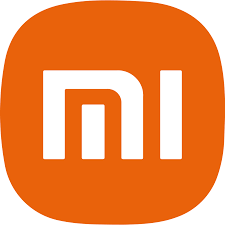
Xiaomi (HKG: 0810)
- Units shipped: N/A
- Revenue: $37.63 billion (2020)
- Number of factories: N/A
- Number of models: N/A
- Number of employees: 22,074 (2020)
- Primary industry: Consumer electronics, consumer hardware
- EV-related affiliates: Xpeng
Xiaomi (小米 xiǎomǐ) is a consumer electronics giant sometimes compared with Apple because of its loyal customer base and production of smartphones, mobile apps, laptops, and home appliances.
Founded in 2010 with headquarters in Beijing, the tech giant is the world’s third-largest smartphone maker behind Samsung and Huawei, but surpassing Apple. As of 2018, Xiaomi has a presence in more than 80 countries and regions worldwide. On July 9, 2018, Xiaomi successfully listed on the Hong Kong Stock Exchange in the largest tech IPO in Hong Kong.
Xiaomi has been active as an investor in the EV space, backing the Chinese smart EV upstart Xpeng. But on March 30, 2021, Xiaomi announced its intention to enter the EV market on its own terms, spinning off a wholly owned subsidiary led by the CEO, Léi Jūn 雷军. It plans to invest $10 billion into the project over 10 years. Lei called the decision “the final major entrepreneurial project of his life” and suggested that the company’s recent change of logo was in response to the new venture.
Timeline:
- November 13, 2019 — Xiaomi raises $400 million for Xpeng / TechCrunch
- March 30, 2020 — Xiaomi announces intention to enter the electric vehicle market / SupChina
Dongfeng Motor Corporation (SEHK: 0489)
- Units shipped: Number of EVs not available
- Revenues: 834 billion yuan / $128 billion (2020)
- Number of factories: 1
- Number of models: 3
- Number of employees: 136,550 (2020)
- Primary industry: Gas-powered cars, trucks, buses, military vehicles, autoparts
- EV-related affiliates: Renault-Nissan, CATL, Huawei, Tencent
Dongfeng Motor Corporation (东风 dōngfēng) is a Chinese state-owned automaker headquartered in Wuhan. Founded in 2001, it is one of the “Big Four” Chinese automakers alongside SAIC, FAW, and Changan Automobile, and makes trucks, buses, and passenger cars as well as doing auto financing and related businesses. Dongfeng has a total of 13 subsidiaries under its brand, among them joint ventures with many foreign automakers such as Honda, Renault, Nissan, and Peugeot-Citroën.
Dongfeng currently has one pure electric sub-brand called Skio, which offers three models.
Timeline:
- March 2017 — Dongfeng to launch new EV brand in China / Car News China
- August 2017 — Renault, Dongfeng and Nissan agree to co-develop and sell electric vehicles / Yicai
- August 2018 — Dongfeng signs cooperation agreement with Huawei to research intelligent mobility systems / Marklines
- August 2018 — Dongfeng signs cooperation agreement with Tencent to research vehicle connectivity and internet technology / Marklines

Chang’an Automobile (SHE: 000625)
- Units shipped: Number of EVs not available
- Revenues: 68.1 billion yuan / $9.9 billion (2019)
- Number of factories: N/A
- Number of models: 12
- Number of employees: 80,000 (2020)
- Primary industry: Gas-powered cars, microvans, commercial vans, light trucks
- EV-related affiliates: Baidu, Huawei, CATL
Chang’an Automobile (长安 cháng’ān) is a Chinese state-owned automaker headquartered in Chongqing and a subsidiary of Chang’an Automobile Group. Founded in 1862, it is one of the “Big Four” Chinese automakers alongside SAIC, FAW, and Dongfeng. As a longtime player in China’s auto industry, Chang’an has a global footprint with 16 global production bases, 35 vehicle and engine plants, and 10 key overseas markets. It has been selected twice in CCTV’s “National Brand Project,” which bestows “national brand”
status on certain brands.
Like other state-owned automakers, Chang’an has joint ventures with Western and Japanese counterparts, specifically Ford and Mazda. The company began exploring the smart EV space in 2016, announcing a formal partnership with Baidu in 2017. Last year, Chang’an also announced plans to work with Huawei on smart car tech. In August 2020, Chang’an released the first purely electric vehicle, a compact SUV, under its Oshan brand, the Oshan X7 EV.
Timeline:
- June 2016 — Chang’an to invest $3 billion in EVs, rolling out 34 models by 2025 / Nikkei Asia
- January 2017 — Baidu and Chang’an team up to enter smart car space / Chang’an Press
- March 2020 — Chang’an to start mass producing electric cars / Nikkei Asia
- November 2020 — Chang’an to develop EVs with CATL and Huawei / Automotive News
- April 12, 2021 — Huawei unveils five new smart car tech for Chang’an EVs / SupChina
Guangzhou Automobile Group (SEHK: 2238)
- Units shipped: 6,876
- Revenues: 59.1 billion yuan / $9.1 billion (2020)
- Number of factories: 2
- Number of models: 7
- Number of employees: 93,854 (2019)
- Primary industry: Gas-powered cars, commercial vehicles, sports vehicles, motorcycles, auto parts
- EV-related affiliates: SAIC, Huawei, CATL
Guangzhou Automobile Group (GAC) is a Chinese automaker owned by the Guangzhou municipal government. In size, it usually ranks outside China’s “Big Four” automakers FAW, Dongfeng, Chang’an, and SAIC Motor. Established in 1997 with headquarters in Guangzhou, GAC is listed on the Hong Kong and Shanghai stock exchanges.
Its electric arm, known as Guangzhou New Energy Automobile, sells cars under the Aion brand.
Like other state-owned enterprises, GAC has established joint ventures with several foreign automakers, including Honda, Toyota, Mitsubishi, Isuzu, and Fiat Chrysler. Honda and Toyota cars account for about 70% of GAC’s total sales. GAC also sells its own brand of cars, the most popular known as Trumpchi.
Timeline:
- December 23, 2019 — GAC signs cooperation agreement with SAIC to research connectivity and technological R&D / Marklines
- December 28, 2020 — CATL-GAC Power Battery Co. main plant completes construction / Marklines
- April 12, 2021 — Huawei unveils five new smart car tech for Guangzhou EVs / SupChina
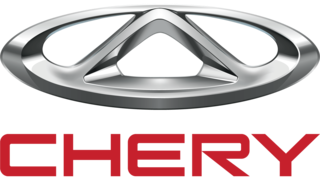
Chery Automobile
- Units shipped: N/A
- Revenues: $5.6 billion worldwide (2020)
- Number of factories: 2
- Number of models: 10
- Number of employees: 16,721 (2020)
- Primary industry: Gas-powered cars, commercial vehicles, auto parts
- EV-related affiliates: N/A
Chery Automobile (奇瑞 qíruì) is a state-owned automaker headquartered in Anhui. Founded in 1997, Chery primarily manufactures gas-powered cars, minivans, and SUVs. However, it was the second automaker in China, behind BYD, to transition to electric vehicles, churning out its first model in the early 2000s. It began investing heavily in the industry by 2011 and now has 10 pure electric models. Chery is also China’s top auto exporter and, unlike its other state-owned counterparts, it does not have
joint ventures with any established western automakers.
Timeline:
- February 19, 2009 — Chery unveils new electric car S1EV / Green Car Reports
FAW Group (SHE: 000800)
- Units shipped: 550,869 (2021)
- Revenues: 620 billion yuan / $89.2 billion (2019)
- Number of factories: 1
- Number of models: 3
- Number of employees: 6,891
- Primary industry of parent(s): Gas-powered cars, buses, trucks, auto parts
- EV-related affiliates: BYD
FAW, or First Automotive Works (第一汽车集团 dìyī qìchē jítuán), is a state-owned enterprise headquartered in Changchun, Jilin, and one of the “Big Four” Chinese automakers. Its oldest marque is luxury car brand Hóngqí (红旗), founded in 1958. Cars branded Hongqi, which means “red flag,” were originally only for high-ranking Chinese Communist Party officials including Máo Zédōng 毛泽东. Hongqi now has three all-electric models: The E-HS3, the E-HS9, and the E-QM5.
FAW announced that 91,900 units of Hongqi were shipped in the first 4 months of 2021, a 132% spike from last year.
Timeline:
- January 12, 2021 — Hongqi E-QM5 set to ship in spring / Formacar
- April 7, 2021 — BYD announces it will supply batteries to FAW / Bloomberg
- April 21, 2021 — Hongqi partners with Silk EV of Italy / The Verge
- May 06, 2021 — Hongqi scores 132% YoY in January sales / Auto News
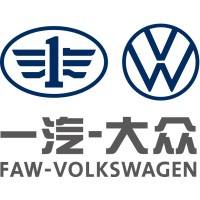
FAW-Volkswagen Automobile (SHE: 000800)
- Units shipped: N/A
- Revenues: 620 billion yuan / $89.2 billion (2019)
- Number of factories: 5
- Number of models: 9
- Number of employees: 100,000 (2019)
- Primary industry of parent(s): Gas-powered cars, buses, trucks, auto parts
- EV-related affiliates: FAW, Volkswagen, Audi
FAW-Volkswagen Automobile is a joint venture between Chinese automaker FAW Group and German automaker Volkswagen Group. Audi, which is wholly owned by Volkswagen, also has a 10% stake in the venture. Established in 1991, the joint venture began making passenger cars under the Volkswagen and Audi brands. In 2019, the company launched two electric sedans, “e-Bora” and “e-Golf.”
Timeline:
- October 13, 2020 — Audi and FAW announced a new joint venture to sell electric vehicles in China / Autonews
Evergrande (SEHK: 3333)
- Units shipped: N/A
- Revenues: 723.5 billion yuan / $110 million
- Number of factories: 3
- Number of models: 6
- Primary industry: Electric vehicles
- Primary industry of parent: Real estate
- EV-related affiliates: Tencent
Evergrande Health was a subsidiary of Evergrande, one of China’s largest property developers, but probably also one of the world’s most indebted companies. In 2020, the unit was rebranded as Evergrande New Energy Vehicles (恒大新能源汽车), after announcing an investment of about $7 billion in EVs in November 2019.
With three production facilities in Nansha, Guangzhou, and Shanghai, Evergrande launched its first concept model under the brand Hengchi (恒驰) in 2020 and has showcased prototypes for nine models since August 2020. The subsidiary has yet to mass-produce any of them, however.
Timeline:
- March 16, 2020 — Evergrande announces partnership with Tencent to develop smart vehicle operating systems / Reuters
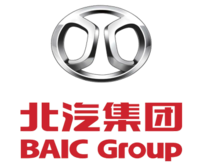
BAIC Motor (SEHK: 1958)
- Units shipped: N/A
- Revenue: 11.7 billion yuan / $1.8 billion (2016)
- Number of factories: 3
- Number of models: 20
- Number of employees: 20,720
- Primary industry: Gas-powered cars
- Primary industry of parent: Gas-powered cars, trucks, military vehicles, buses, agriculture equipment
- EV-related affiliates: Huawei, Didi, Daimler, BJEV, CATL
BAIC Motor (北京汽车 běijīng qìchē) is a state-owned enterprise and subsidiary of BAIC Group, which is itself a part of the Beijing Municipal Government.
Incorporated in 2010, it became a listed company in 2014. As of 2016, it holds a 50% stake in the China operations of Hyundai and Mercedes-Benz. It is one of the largest car manufacturers in China. In 2017, the company partnered up with German carmaker Daimler and spun off a subsidiary called Beijing Electric Vehicle (BJEV). BJEV’s primary car brand is called Arcfox, which now has four models, one of which is powered by Huawei’s intelligent vehicle software “Huawei Inside.”
In 2019, BJEV began a joint venture with ride-hailing giant Didi Chuxing to explore projects related to EVs.
Timeline:
- March 30, 2020 — BAIC teams up with Didi and CATL on a platform that will offer BAIC cars for lease / SCMP
- April 17, 2021 — Huawei-powered smart luxury EV Alpha S was launched jointly with automaker BAIC / Security Times (in Chinese)
Software and service providers

Alibaba (NYSE: BABA) (SEHK: 9988)
- Revenues: $72 billion (2020)
- Number of employees: 117,600
- Primary industry: Ecommerce, internet, technology
- EV-related affiliations: SAIC, Xpeng
Alibaba (阿里巴巴 ālǐ bābā) is one of the world’s largest ecommerce companies. Founded in 1999 in Zhejiang, it hosts the largest B2B (Alibaba.com), C2C (Taobao), and B2C (Tmall) marketplaces in the world.
The company has a diverse set of other businesses, including artificial intelligence, cloud computing, and fintech. In January 2021, Alibaba set up an EV joint venture called Zhiji with China’s biggest automaker, SAIC Motors. The joint venture will launch mass production of two EVs with deliveries beginning in the first quarter of the year. One of Alibaba’s former executives, Hé Xiǎopéng (何小鹏), went on to found Xpeng.
Timeline:
- June 2019 — Alibaba leads $348 million funding round into Xpeng / Investopedia
- January 2021 — E-commerce giant Alibaba formed an EV joint venture with China’s biggest automaker, SAIC Motor Corp. / Nikkei Asia

Baidu (NASDAQ: BIDU)
- Revenues: $16.4 billion (2020)
- Number of employees: 45,887
- Primary industry: Internet-related services, technology, AI
- EV-related affiliations: Geely, NIO, WM Motors
Baidu (百度 bǎidù) is one of the world’s largest internet and technology companies. The company, headquartered in Beijing, offers a variety of services, including a search engine, which is the second largest in the world, mapping services, an online encyclopedia, cloud storage, and artificial intelligence.
Baidu has been at the forefront of the push toward autonomous driving. In 2017, Baidu launched the Apollo project (阿波龙 ābōlóng), a self-driving vehicle platform that offers “a complete open automatic driving ecosystem” for players in the automotive industry. In the same year, Baidu also launched a $1.5 billion fund dedicated to investing in as many as 100 autonomous driving projects. It has invested in EV makers such as NIO and WM Motors. In July 2018, Baidu commenced mass production of unmanned Apollo
buses.
Timeline:
- July 2018 — Baidu commences mass production of unmanned Apollo buses.
- January 2021 — The company set up a joint venture with domestic carmaker Zhejiang Geely Holding Group to make smart EVs.
- April 20, 2021 — Baidu aims to fit 1 million cars with its Apollo self-driving system in 3-5 Years / Caixin Global

ByteDance
- Revenues: $37 billion (2020)
- Number of employees: 60,000 (2020)
- Primary industry: Internet, social network, video sharing
- EV-related affiliations: QCraft, Li Auto
ByteDance (字节跳动 zìjié tiàodòng) is an internet technology company known for its video-sharing platforms TikTok and Douyin, and Toutiao (“Headlines”), a popular news recommendation app.
In 2019, ByteDance was named as an investor in the EV maker Li Auto during the latter’s prospectus for a U.S. initial public offering. In March 2021, ByteDance announced an investment in local autonomous driving startup QCraft, the first sign of its foray into smart EVs. ByteDance is now preparing plans to list Douyin in New York or Hong Kong.
Timeline:
- July 2, 2019 — ByteDance invests $30 million in the EV maker Li Auto.
- March 5, 2021 — ByteDance announced that it is investing in local autonomous driving startup QCraft.
- March 31, 2021 — ByteDance considers listing Douyin, its subsidiary and the Chinese counterpart of TikTok, in New York or Hong Kong.

Didi Chuxing
- Revenue: 6.5 billion yuan / $1 billion (2020)
- Number of employees: 11,407 (2019)
- Primary industry: Ride hailing, delivery services
- EV-related affiliations: BYD, BJEV, BAIC, Volvo, Ford, Renault, Geely
Didi Chuxing (滴滴出行 dīdī chūxíng) is China’s largest ride-hailing platform with services similar to Uber. Headquartered in Beijing, its platform provides services such as taxi hailing, ride sharing, and bike sharing.
Since late 2010, Didi has become active in the EV market collaborating with Chinese automakers such as BAIC and BYD, as well as foreign automakers Ford and Renault.
Didi has its own autonomous driving arm called Didi Autopilot, which works on the technology behind self-driving cabs. In April 2021, the ride-hailing giant began making its own EVs. In the same week, it also filed for an initial public offering that could raise as much as $100 billion.
Timeline:
- February 2018 — Didi sets up an electric vehicle-sharing platform with 12 auto-makers including BYD, Ford, Renault-Nissan-Mitsubishi, BAIC, BJEV, and Geely / Reuters
- March 2020 — BAIC teams up with Didi and CATL on a platform that will offer BAIC cars for lease / SCMP
- November 2020 — Didi launches its first ride-sharing electric vehicle called D1, co-developed with BYD / SupChina
- April 2021 — Didi files confidentially for a listing in the U.S. that could raise as much as $100 billion / Bloomberg
- April 19, 2021 — Didi to use Volvo vehicles in self-driving test / Caixin Global
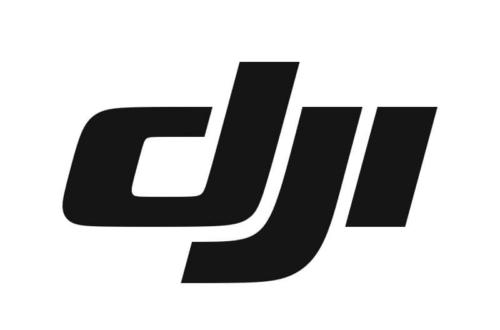
DJI
- Revenue: $2.83 billion (2018)
- Number of employees: 14,000 (2018)
- Primary industry: Drones and other uncrewed aerial vehicles, robotics, AI
- EV-related affiliations: BYD, BJEV, BAIC
DJI, or Dajiang Innovations (大疆创新 dàjiāng chuàngxīn), is the world’s biggest consumer drone company, with 70% of global market share. Headquartered in Shenzhen, the 15-year-old company makes remote controlled quadcopters and commercial drones for aerial photography, agriculture, forestry, and security.
DJI announced in April 2021 that it would exhibit its intelligent driving systems at the Shanghai Auto Show. It simultaneously revealed DJI Automotive as a separate division within the company.
Timeline:
- April 2021 — DJI to exhibit its intelligent driving systems at the Shanghai Auto Show / DJI WeChat Account (in Chinese)
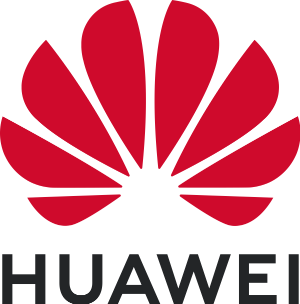
Huawei
- Revenue: 888 billion yuan / $136.7 billion
- Number of employees: 197,000 (2020)
- Primary industry: Consumer electronics, telecommunications
- EV-related affiliations: BAIC, Chang’an Automobile, Guangzhou Automobile
Founded in 1987 and headquartered in Shenzhen, Huawei (华为 huáwéi) is a world-leading provider of information and communications technology (ICT) infrastructure and smart devices. But after the U.S. blacklisted the firm and throttled its supply of semiconductors, Huawei has been looking for new growth areas.
Huawei has said it will not manufacture EVs, but it has invested $1 billion in EV software. Unlike its main competitor Xiaomi, Huawei will partner up with other automakers and provide the intelligent systems behind their EVs. The company has already announced partnerships with BAIC Group, Changan Automobile, and Guangzhou Automobile. Its first Huawei-powered self-driving vehicle, the Arcfox Polar Fox Alpha S, debuted with BAIC at the Shanghai Auto Show.
Timeline:
- April 12, 2021 — Huawei to invest $1 billion on car tech / Bloomberg
- April 17, 2021 — Huawei-powered smart luxury EV Alpha S was launched jointly with automaker BAIC / Security Times (in Chinese)
- April 19, 2021 — Huawei to hire 5,000 engineers for electric car tech / SupChina
- April 19, 2021 — First car equipped with Huawei self-driving system goes on sale / Caixin Global

JD (Nasdaq: JD) (SEHK: 9618)
- Revenues: $82 billion (2019)
- Number of employees: 227,730 (2019)
- Primary industry: Ecommerce, drones, robotics, AI
- EV-related affiliations: Xpeng, NIO, Geely
JD.com (京东 jīngdōng) is China’s second-largest ecommerce company behind Alibaba. Headquartered in Beijing, the Fortune 500 company has ventured into high-tech robotics and AI delivery.
JD has the largest drone delivery infrastructure in the world, and has begun testing robotic delivery services and driverless delivery through autonomous trucks. JD has informal affiliations with NIO through its CEO, Liú Qiángdōng 刘强东, one of NIO’s early founders.
In 2018, JD established an EV service division known as JD Service Plus to utilize its delivery and logistics infrastructure to serve the EV market. In September 2020, JD signed a partnership with Xpeng, signing those services to the EV maker.
Timeline:
- March 18, 2018 — JD extends smart retail vision with Geely partnership / JD.com
- May 2018 — JD announces a partnership for in-car delivery service with NIO.
- September 2020 — JD signs partnership with Xpeng to provide integrated services for its EV business, including measurement, installation, maintenance, and after-sales service of home charging.

Meituan (SEHK: 3690)
- Revenue: $13.7 billion (2019)
- Number of employees: 46,662 (2018)
- Primary industry: Internet, retail
- EV-related affiliations: Li Auto
Meituan (美团 měituán) is an internet company that provides online retail services, including entertainment, dining, food and grocery delivery, and travel. Headquartered in Beijing, it was founded by Wáng Xìng 王兴 in 2010.
In June 2019, Wang Xing led an investment round of around $500 million in hybrid electric car maker Li Auto.
Timeline:
- June 2019 — Meituan’s founder, Wang Xing, led an investment round (in Chinese) of up to $500 million in hybrid electric car maker Li Auto.

Tencent (SEHK: 700)
- Revenues: $74 billion (2020)
- Number of employees: 85,858 (2020)
- Primary industry: Internet, social media, AI, video games
- EV-related affiliations: Evergrande, NIO, WM Motors, Byton
Based in Shenzhen, Tencent (腾讯 téngxùn) is one of the world’s largest technology companies, involved in internet-related services, including entertainment (gaming and music), social media, artificial intelligence, banking, and payment systems.
In 2016, Tencent, together with electronics manufacturer Foxconn and luxury car dealer Harmony New Energy Auto, founded Future Mobility (now known as Byton), a pure all-electric vehicle startup.
Tencent has created its own AI self-driving program, a competitor to Baidu’s Apollo Project, recruiting numerous industry players. In addition to Byton, Tencent has backed a number of EV makers, including NIO and WM Motors. In 2020, it announced a partnership with Evergrande to develop smart vehicle operating systems.
Timeline:
- 2016 — Tencent, together with electronics manufacturer Foxconn and luxury car dealer Harmony New Energy Auto, founded Future Mobility (now known as Byton), a pure all-electric vehicle startup.
- March 2017 — Tesla announced Tencent had purchased a 5% stake in Tesla for $1.78 billion.
- March 2020 — Tencent announces partnership with Evergrande to develop smart vehicle operating systems.
Author: Jeremy Goldkorn, Anthony Tao, Lucas Niewenhuis, Jiayun Feng, and Chang Che – SupChina



